Asuntos Relevantes de Responsabilidad Corporativa
The Ecopetrol Group is committed to adopting responsible business conduct, avoiding and addressing the negative consequences of its operations, while contributing to the sustainable development of its territories and countries of operation. In this sense, the Company acts with due diligence to identify, prevent, mitigate, and remedy, if applicable, the current and potential negative impacts generated by its operations.
Below are, therefore, a series of cases that have required special attention for the proper management thereof, in order to identify, prevent, and mitigate any negative impacts, while monitoring the implementation of action plans and their results, and reporting on how these negative impacts were addressed.
Contingencia Lisama 158
Progress in environmental recovery
Ecopetrol continues with the execution of the environmental recovery activities established due to the contingency presented in the Lisama 158 well in March 2018, following the actions described in the Environmental Recovery Plan – PRA, which integrated the guidelines and management measures set forth in the Comprehensive Environmental Management Plan Applicable to Seas, the recommendations issued by the Alexander von Humboldt Institute (IAvH), the guidelines generated by the UN, and the advice of partner expert consultants, the Geotechnology company, and Universidad Industrial de Santander – UIS.
The PRA considers the biotic, abiotic, and social components, as illustrated below:
The following actions were adopted as part of the comprehensive management of biodiversity for the ecosystemic recovery of the area:
| Comprehensive biodiversity management – Measures for ecosystem recovery – Lisama 158 Contingency | |||
|---|---|---|---|
| Water-Soil | Fauna | Flora | Environmental monitoring |
| Cleaning of bodies of water | Construction of land habitats and water microhabitats | Cleaning of impregnated small trees | Follow-up on the vegetation in the category of small tress, sapling, pole stages |
| Removal of impregnated soil | Reincorporation of wild fauna | Rehabilitation of 103 Ha (Flora) – Conservation agreements | Follow-up and monitoring of land and tree fauna adaptation, abundance of fish stocks and semi-aquatic and reinserted species |
| Dismantling and structuring of contention works, transfer pools, and geodren planar point of control. | Monitoring using camera traps | Rehabilitation of 4.13 Ha Zones zero and one – property purchases | Monitoring of water nutrients and sediments and their incidence in hydrobiological communities | Compensation |
Monitoreo transversal del estado y tendencia del ecosistema – Instituto de Investigación Alexander von Humboldt y Ecopetrol S.A
Monitoring using camera traps
Follow-up measures using camera traps in the riparian forest in the Lisama gully and La Muerte spout.
The cameras used around the gallery forest of La Muerte. Obtaining audiovisual and photographic material, capturing 26 species, some of them living in areas with limited disturbance such as the Leopardus pardalis.
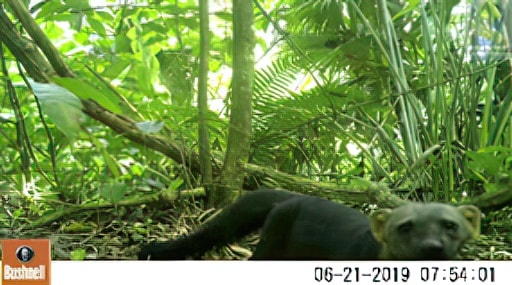
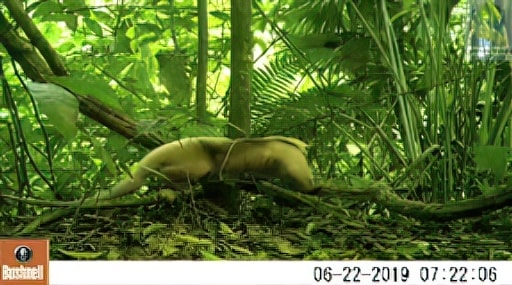
Image 2. Anteater.
Follow-up measures using camera traps in Zones zero and one
Two camera traps were installed to identify the presence of some fauna species (Díaz & Payán, 2012), recording the following: for the reptiles biological group, 2 orders, 2 families, 2 genres, 2 species, and 5 records; for the
birds biological group, 9 orders, 10 families, 11 genres, 11 species, and
245 records; and for the mammals biological group, 4 orders, 11 families,
13 genres, 11 species, and 457 records
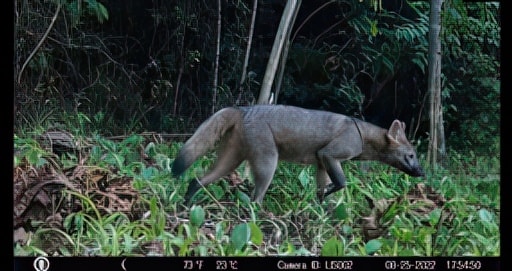
Image 3. Dog-fox recorded in the Santo Tomás II Farm.
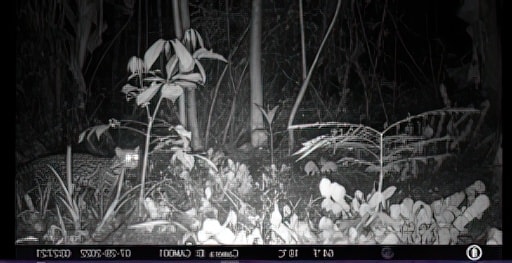
Image 4. Ocelot recorded in the Santo Tomás II Farm.
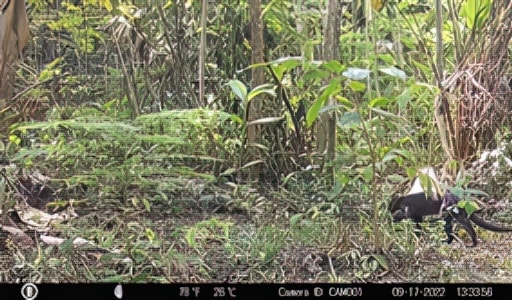
Image 5. Jaguarundi recorded in the Santo Tomás II Farm.
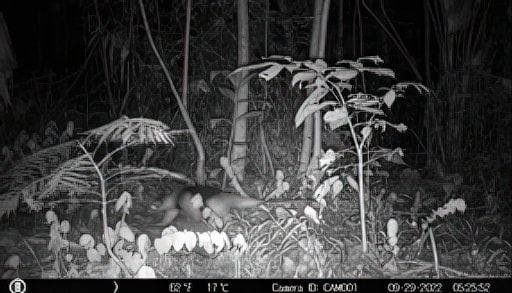
Image 6. Anteater recorded in the Santo Tomás II Farm.
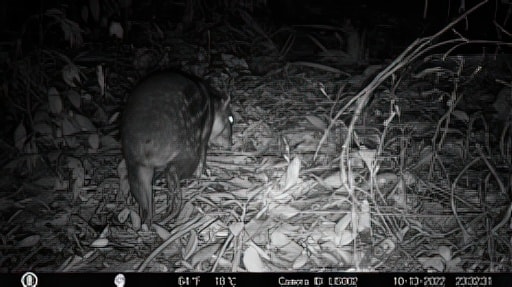
Image 7. Macaw recorded in the Santo Tomás II Farm.
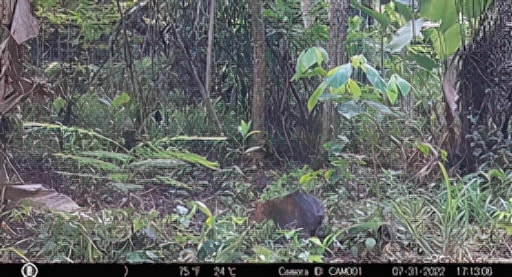
Image 8. Agouti recorded in the Santo Tomás II Farm.
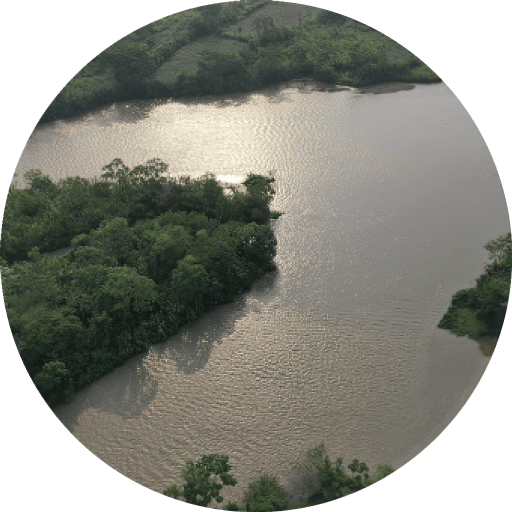
Water
Cleaning of 27,226 m on the La Muerte spout and Lizama Creek
Development of 18 water, sediment and hydrobiological monitoring campaigns
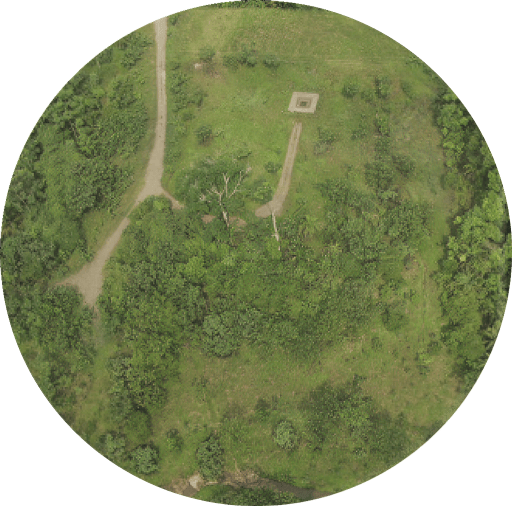
Flora-zone zero and one
0.12 ha Revegetated with ground zero grasses
8,277 seedlings planted in zone one
Compensation of 30 trees on the Santo Tomás II property
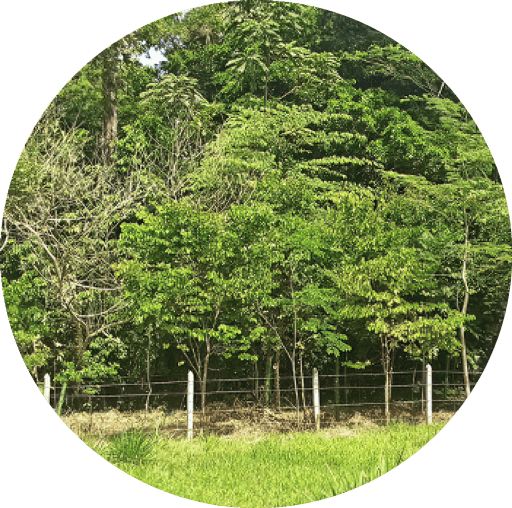
Flora-riparian forest
53.78 ha under rehabilitationn
54,651 seedlings established

Fauna
2,400 individuals reinstated
135 habitats and 34 microhabitats constructed
18 monitoring campaigns
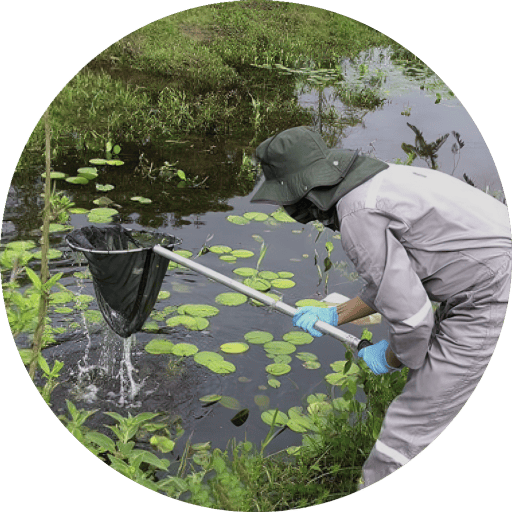
Monitoring
5,745 samples analyzed (water, soil, air, sediments, hydrobiological)
6 flora-plot campaigns
9 Campaigns of Flora – Fustales
4 monitoring of water and sediment nutrients and their impact on the hydrobiological communities
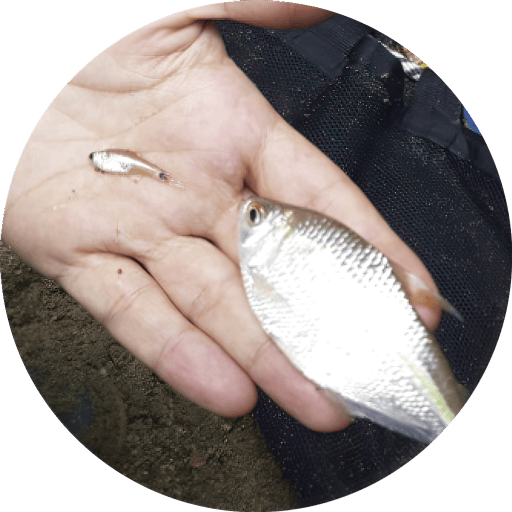
Biodiversity
1 Ecological environmental assessment
4 Monitoring campaigns for biodiversity and ecosystem services
These activities are subject to monitoring and control by Environmental Authorities such as ANLA, with the participation of the CAS and municipal environmental secretariats (Barrancabermeja and San Vicente de Chucurí), producing reports on a quarterly basis. The 17th quarterly report on the progress of activities was presented in November 2022, with a progress of 93.7%.

By means of Record 195 of April 27, 2022, the National Authority of Environmental Licenses (ANLA) concluded the monitoring of nine (9) data sheets established in the PRA, and nine (9) out of the 18 data sheets established in the PRA pertaining to the following topics continue to be valid:
1
Vegetation restoration
2
Production of plant material
3
Information and training
to communities
4
Monitoring of the soil
component, and of biodiversity
and ecosystem services.
Social Advancements
As part of the strategy for the advancement of environmental recovery, engagement sessions were held with communities, authorities, and institutions, including spaces for tripartite dialogue and systematic meetings with artisanal fishermen. These spaces led to the establishment of a two-way communication channel with stakeholders, presenting the progress made on the PRA and the complementary measures adopted with the communities of influence.
As part of compliance with the PRA, training and education programs were to the communities, including topics such as open-water rescue, customer service, community tourism, entrepreneurial behavior, and agricultural and ecological production for food sovereignty taught by SENA, and training in the collection of fishing information taught by Universidad del Magdalena. Complementary training was offered in environmental and ecological issues, with the guide of the professionals from the social and environmental team of the Central Regional unit, and in articulation with the academia to strengthen the knowledge of students in robotics and programming subjects.
Focused on contributing to the well-being and community growth of the populations located in the sectors of influence, 19 voluntary investment projects were executed, including the improvement of infrastructure and the equipping of nine (9) educational institutions, one (1) health post, one (1) multifunctional event hall, two (2) sports centers, two (2) community halls, road improvements, provision of robotics kits for two (2) educational institutions and implements and clothing for dance groups, and last but not least, the rural gasification in La Lizama and La Fortuna. In addition to the above, several projects have been executed to contribute to environmental recovery and the revitalization of fishing, such as river sentinels, rehabilitation of riparian corridors, monitoring of fishing activities, and the diploma course in capacity building as an integration strategy in the ecological rehabilitation and monitoring projects taught by UNIPAZ.
More than six (6) tree planting days have been held in different areas in the municipalities of Barrancabermeja, Cantagallo, and Sabana de Torres, in order to foster the protection and conservation of nature. Also, volunteer activities have been held with the support of Fundación Grupo Ecopetrol (Fundación Ge), which strengthened food security for the fishing families in the village of El Llanito de Barrancabermeja and in the municipality of Cantagallo through the implementation of home orchards, which encouraged the adoption of healthy lifestyle habits and benefited the family basket.
The Company also contributed to the bans on striped catfish in the region by handing out posters and deploying a dissemination campaign. Attention and support were similarly paid to the follow-up visits conducted by the ANLA to monitor compliance with the requirements established in the PRA, thus benefitting 2,000 people in the municipalities of San Vicente de Chucurí, Puerto Wilches, and the district of Barrancabermeja.
Estrategia de divulgación y socialización con comunidades
The measures and results obtained in the execution of the Environmental Recovery Plan are disseminated using different strategies, including social media, public announcements, participatory workshops, Tripartite Committees, and others, as illustrated below:
Lisama: facts, heart, and future
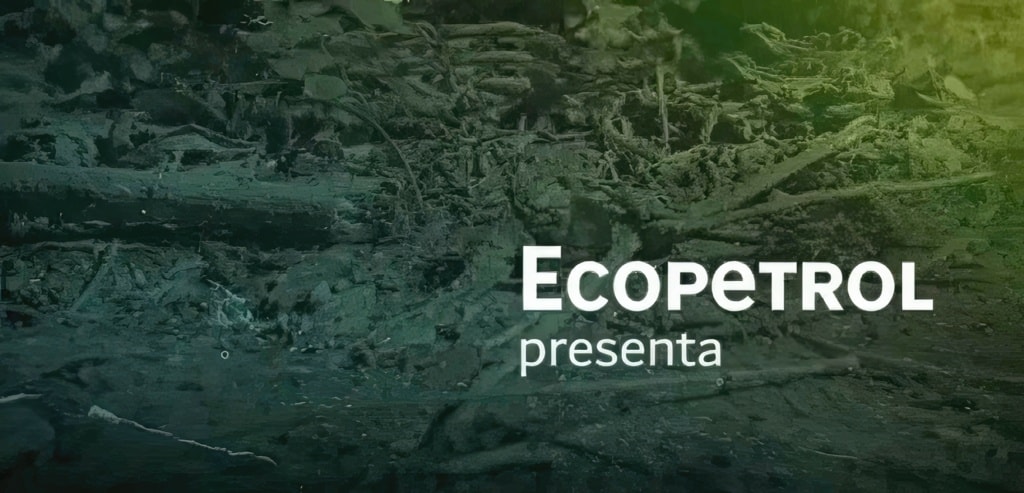
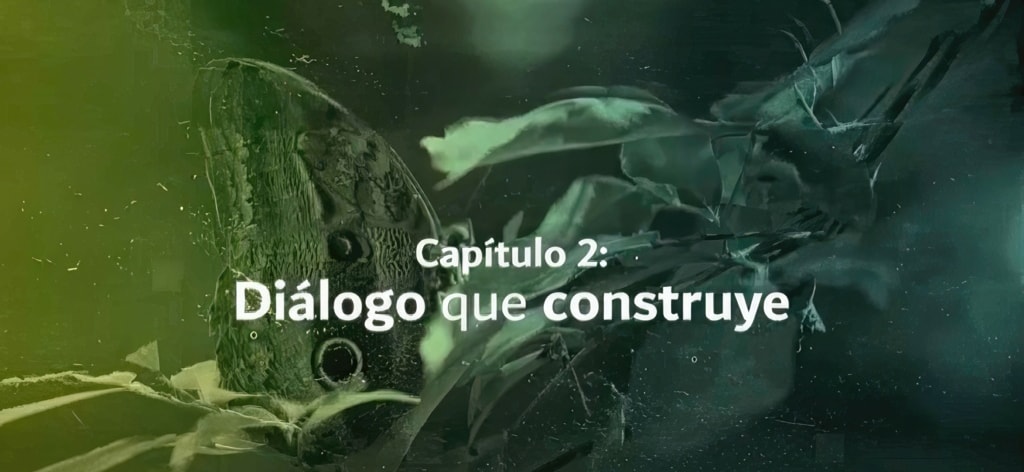
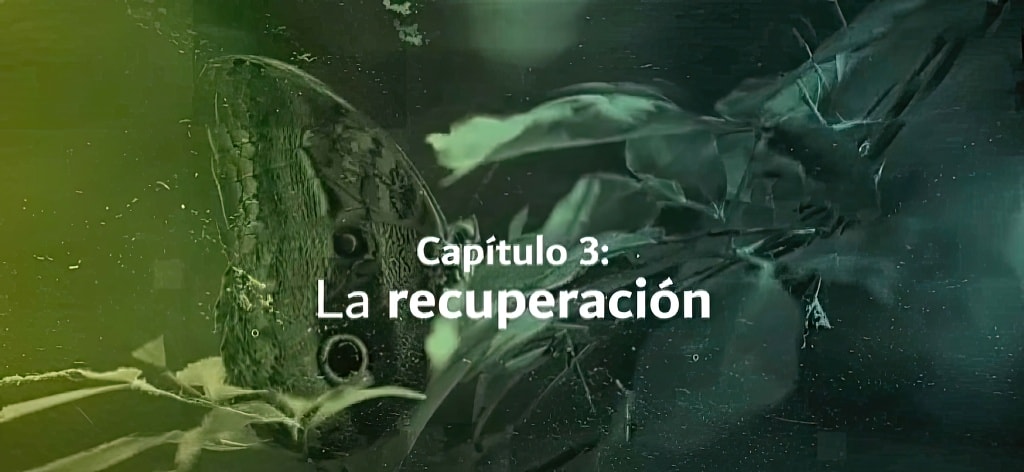
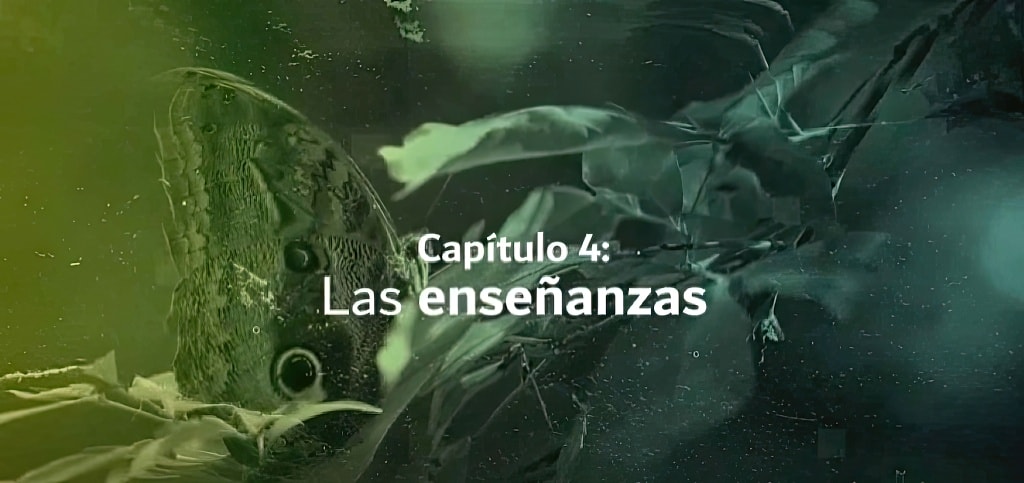
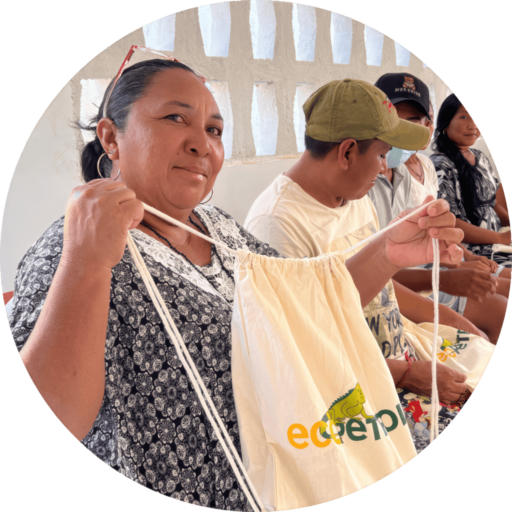
Dialogue with the U´wa People
Thanks to Ecopetrol’s participation in the Discussion Table between the National Government and the U’wa People42 in 2017, communication between Ecopetrol and Asou’wa has strengthened through intercultural workspaces aimed at reinforcing trust and mutual understanding. In these spaces, Ecopetrol has had the opportunity to become acquainted with the U’wa people, and the participants have been able to listen to their concerns and answer questions about Ecopetrol’s activities.
Since 2018, an engagement plan began between Ecopetrol and Asou’wa (Association gathering the 17 communities of the United U’wa Reserve in Santander, Norte de Santander, and Boyacá) for the construction of a joint vision for the territory based on three (3) pillars: direct and permanent dialogue, mutual understanding, and the strengthening of trust. The plan has allowed communities to shift away from confrontation and resistance to being willing to establish dialogue, mutual understanding, and to exchange knowledge. Moreover, the engagement plan focuses on delving into environmental protection strategies and on determining how to avoid or mitigate the impacts arising from the deployment of extractive activities.
In 2022, Ecopetrol took on the challenge of solidifying trust with the new Asou’wa Board of Directors for the period of 2022 – 2025, in order to continue the intercultural dialogue and the social investment proposals planned for the benefit of the U’wa People.
The “Construction of the Joint Vision for the Territory” strategy, which is part of the Engagement plan, allowed mutual understanding between the community and the Company for the generation of trust. To this end, knowledge exchange activities were organized with an intercultural approach in order to understand why there are needs and concerns associated with the preservation of the U’wa People in the midst of industrial activities.
Agreements were reached in 2022 on the contents of some community benefit projects for the U’wa people, pertaining to food security and health, planned jointly with the authorities of the U’wa people, bearing in mind that the cultural conditions specific to the U’wa must be a priority to ensure an effective approach and a successful project, as well as the improvement of ancestral roads for an easier and safer mobility of the community within their reserve.
With regard to infrastructure such as meeting spaces for the communities, the structuring of the Center for Intercultural Reflection of the U’wa indigenous community in the municipality of Cubará (Boyacá) was completed in 2021, and the agreement for construction was signed in 2022, also with a protocol ceremony of placing the first stone for the start of the project, which will benefit more than 7,500 people. After several years of disengagement, today, there is a stable and permanent line of communication with Asou’wa.
On the other hand, healthcare days were held in the Catatumbo region, with the support of Fundación Operación Sonrisa and Profamilia, benefiting 3,500 children and mothers of the U’wa indigenous community.
Temporary Suspension of Discharges
into the Guayuriba River (Colombia)
Ecopetrol currently holds a permit to discharge treated production water into the Guayuriba River43 arising from the production activities conducted in the Castilla field, located in the municipality of Acacías in the Department of Meta.
On December 14, 2020, the Cormacarena Environmental Authority imposed a preventive measure to suspend discharges due to apparent contamination detected in the water source, according to the visits made by the Authority in the months of March and October that year, and also due to an alleged breach of the provisions set forth in Follow-up Order PS-GJ.1.2.64.20.0329 of 2020[44].
Ecopetrol submitted several requests to the environmental authority to lift this measure, arguing that the discharge conditions fully complied with the provisions of Resolution 631 of 2015 and with local regulations on water quality objectives. Furthermore, an action plan was presented for the improvement of the river’s water conditions, including short, medium, and long-term measures to mitigate the effects caused by the natural clogging of the river, enhance dilution, and improve the quality of the discharge. This action plan was approved by the environmental authority.
Considering the above, Cormacarena ordered the provisional lifting of the preventive measure on June 11, 2021, subject to verification of the actions initiated by Ecopetrol. The permanent lifting of the preventive measure was requested on November 24, 2021, given the Company’s compliance with the parameters set forth in current national and local regulations. On December 15, 2022, the permanent lifting of the preventive measure was once again requested.
It is worth noting that, due to the events that led to the imposed preventive measure, Cormacarena initiated a sanctioning process on February 11, 2021, and a statement of objections was issued against Ecopetrol on December 17, 2021, which was notified on January 6, 2022. The evidentiary stage initiated in September 2022. As a result of the sanctioning process, a sanction could be imposed on Ecopetrol.
Ecopetrol continues to comply with the measures recommended in the administrative proceedings issued by the environmental authority and continues to submit periodic reports on the execution of dredging activities45 at the point of discharge, as well as reports on the channeling process in the Guayuriba River and the progress made towards the medium and long-term actions proposed in the discharge system improvement plan.
- a)
Cartagena Refinery Case – Reficar
The Cartagena Refinery expansion and modernization project has been audited and investigated by the Office of the Inspector General of the Nation (PGN, as per its Spanish acronym) and the Office of the Comptroller General of the Republic of Colombia (CGR, as per its Spanish acronym), and there are currently ongoing proceedings under criminal jurisdiction against former Cartagena Refinery workers or contractors. None of the proceedings is underway or has been underway against the Cartagena Refinery or Ecopetrol, neither in Colombia, nor in the US, nor in any other country.
The administrative authorities (Office of the Inspector General and Office of the Comptroller General) have issued different decisions. The facts under investigation, in relation to which these control entities have already ruled on, correspond to:
The budget increase for the execution of the project by means of five (5) change controls with regard to the initial budget.
Late entry into operation
of the refinery.
Signing and implementation
of billing procedures.
Structuring and implementation
of the incentives plan.
None of these investigations concluded that bribery,
fraud, or corruption had taken place.
Decisions Issued by the Office of the Inspector General
The Office of the inspector General has issued three (3) decisions in favor of former employees and former members of the Board of Directors of the Cartagena Refinery, as well as former members of Ecopetrol’s Board of Directors.
The PGN concluded that its conduct was not irregular, since the additions to the project’s budget were necessary. The cost estimates and the schedule presented by the contractor were proven to be wrong and underestimated.
For the Office of the Inspector General, the change controls were adopted in response to an erroneous budget projection by the contractor, which precluded the continuation of the work if the initial budget increase was not authorized, and they were the most convenient solution to continue the project.
The Office of the Inspector General concluded that there was clarity in the structuring process, the implementation, and the results of the incentives plan, and that the milestones set for their corresponding payments were met.
Decisions Uttered by the Office of the Comptroller General
Since 2018, the Office of the Comptroller General, within the framework of fiscal responsibility proceeding PRF-005-2017, decided to drop the case and dismiss any connection of all parties involved (former managers, former employees, contractors, Ecopetrol insurers) with the approval of change controls 1 and 5 for not constituting property damage, and of all former members of Ecopetrol’s Board of Directors with change controls 2, 3, and 4, considering that they made timely decisions to secure the financing of the project and that they acted with diligence and prudence within the framework of their roles.
The decision issued on April 26, 2021, confirmed by the Office of the Comptroller General on July 6 that year, determined five former employees of the Cartagena Refinery, seven former members of its Board of Directors, four (4) contractors, and three (3) insurance companies to be the tax managers. However, their conduct is not related to acts of corruption, bribery, or fraud.
For the Office of the Comptroller General, the fiscal damage caused in the Project was the result of the decisions that led to the loss of value of the largest investments, when approving the additions of excess CAPEX resources above the levels consistent with the remuneration of the capital contributed to the Project, at its opportunity cost, in change controls 2 and 3.
The CGR considered the fiscal damage as the sum of the portions of each addition to the Project’s CAPEX, which affected the profitability and value promise, materialized in the impact on the net present value (VPN) and the internal rate of return (IRR) of the Project.
This is an administrative decision and the legality thereof has not been overseen by a judge of the Republic. The parties identified as tax managers were able to file a claim against the administrative act by means of the legal proceedings provided for in the Colombian legal system.
On the other hand, with regard to the late entry into operation of the refinery, the Office of the Comptroller General dropped the proceeding on February 3, 2022, as it found no proven damage or injury to public property, among other reasons, arising from the forced changes to the project schedule given the adverse flow of the asset. This, due to the winter wave and labor abnormalities during execution, among other aspects. On March 1, 2022, the Fiscal Judgment and Penalty Chamber of the Office of the Comptroller General confirmed the filing order.


